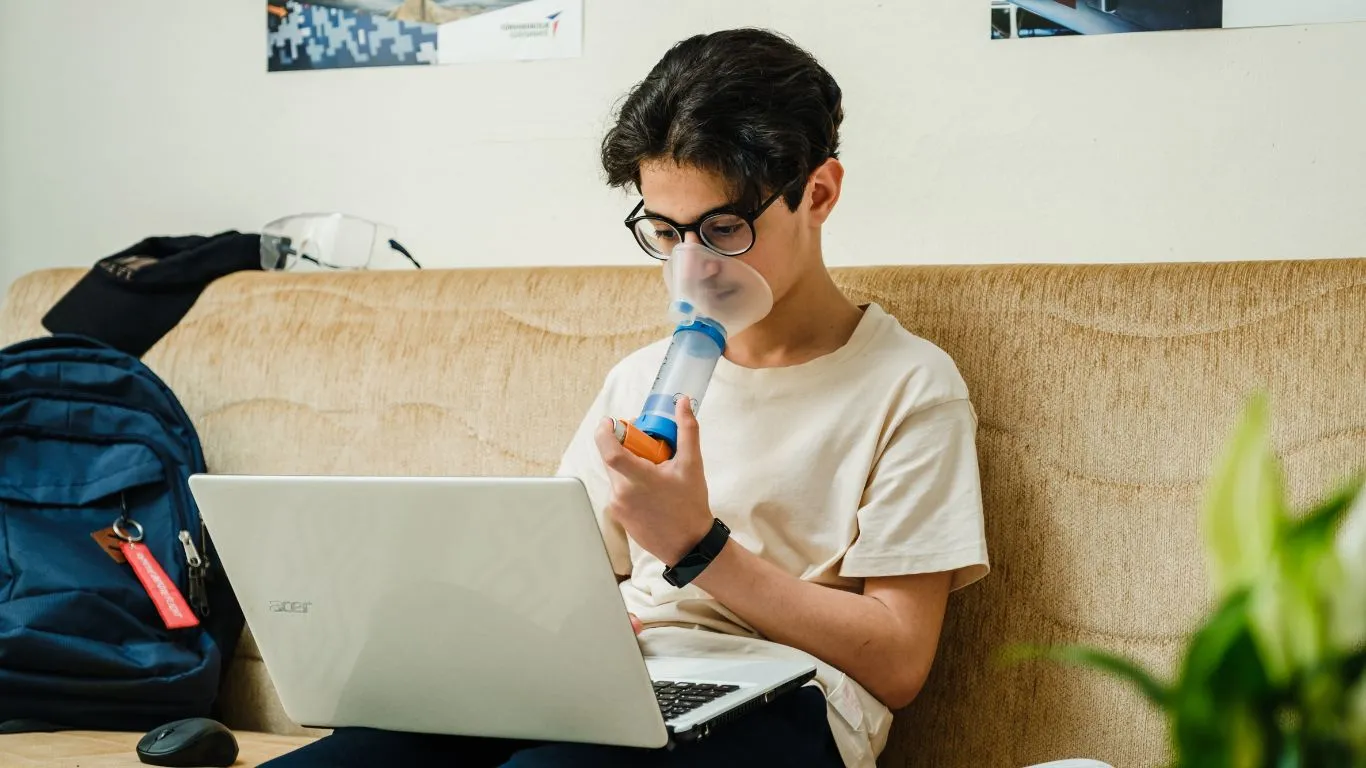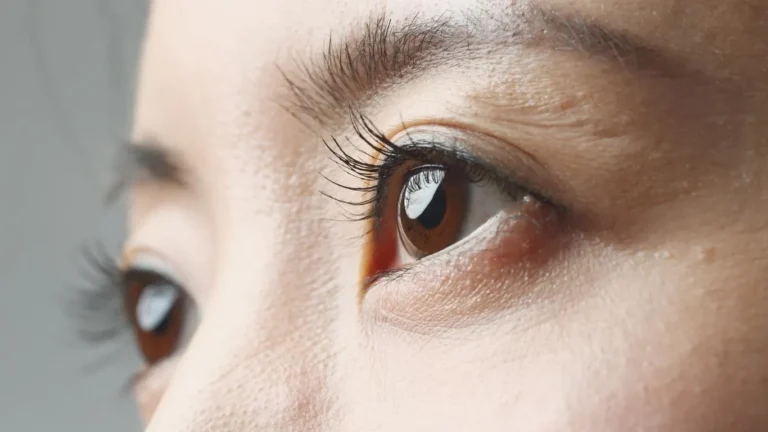Can Asthma Cause Numbness in Lips? Uncover the Surprising Causes
Can asthma cause numbness in lips? If you’ve ever experienced that unsettling tingling or numb feeling creeping over your lips during an asthma episode, you’re not alone. As a pulmonary nurse, I’ve had many patients describe this odd sensation, often with a mix of confusion and worry. The short answer? Yes, asthma can sometimes lead to lip numbness, but the reasons behind it might not be what you expect. Let’s break it down in a way that makes sense—and more importantly, helps you understand what’s happening in your body.
Why Would Asthma Cause Lip Numbness?

First off, let’s get one thing straight: asthma primarily affects the lungs and airways, not your lips. So why do some people feel that tingling, numb sensation? Well, there are a few possible explanations, and trust me, I’ve seen them all in my years working with asthma patients.
1. Hyperventilation During an Asthma Attack
One of the most common culprits behind lip numbness in asthma is hyperventilation. When you’re struggling to breathe, it’s easy to start taking quick, shallow breaths, which can mess up the delicate balance of oxygen and carbon dioxide in your body. This is what we call respiratory alkalosis—a fancy way of saying your carbon dioxide levels drop too low, leading to symptoms like:
- Tingling or numb lips
- Lightheadedness
- Feeling dizzy or faint
- Tingling in fingers or toes
I’ve had patients tell me they thought they were having a stroke because their lips suddenly felt numb. It’s scary, but once we help them control their breathing, the numbness usually goes away.
2. Lack of Oxygen (Hypoxia)
Now, on the flip side, not getting enough oxygen—a condition called hypoxia—can also cause numbness in the lips. If your asthma attack is severe and your oxygen levels drop too low, your body will start prioritizing oxygen for vital organs, leaving less for extremities like your lips and fingers.
Signs of hypoxia include:
- Bluish or grayish lips (a condition called cyanosis)
- Confusion or difficulty concentrating
- Shortness of breath, even when resting
- Chest pain
If you ever notice your lips turning blue during an asthma episode, seek medical help immediately. That’s a sign your body is struggling to get enough oxygen, and that’s not something to ignore.
Could It Be Anxiety-Induced Hyperventilation?

Let’s talk about something I see all the time in my asthma patients—anxiety. When you’re already struggling to breathe, it’s natural to panic, which can make you breathe even faster. That, in turn, worsens hyperventilation and increases your chances of experiencing lip numbness.
Asthma and Panic: A Vicious Cycle
It’s a classic domino effect. You start wheezing → You panic → You breathe faster → Your carbon dioxide levels drop → Your lips go numb. And guess what? The numbness makes you panic even more, which just makes everything worse.
Some patients I’ve worked with describe it as feeling like they’re “losing control” or like their body is betraying them. The good news? Once we teach them breathing techniques and ways to calm their nervous system, those scary symptoms become much easier to manage.
How to Tell If It’s Anxiety or a Serious Asthma Flare-Up
It can be tricky to differentiate between an anxiety attack and a dangerous asthma episode, especially if you experience both. Here are some signs to help you figure it out:
- If you can still take deep breaths, even if they feel tight, it might be anxiety.
- If your lips are tingling but you’re not wheezing, hyperventilation is a likely culprit.
- If you’re struggling to get any air in or out, use your rescue inhaler and seek help.
When in doubt, always err on the side of caution and seek medical attention. It’s better to have a false alarm than to ignore a serious asthma episode.
Can Medications for Asthma Cause Lip Numbness?

Now, here’s something that might surprise you—sometimes, it’s not the asthma itself causing the numbness in your lips, but rather the medications used to treat it. Over the years, I’ve had quite a few patients come in convinced something was seriously wrong, only to find out that their inhaler or oral medication was the culprit.
1. Beta-Agonist Inhalers (Rescue Inhalers)
Most people with asthma are familiar with short-acting beta-agonists (SABAs) like albuterol (also known as salbutamol in some countries). These inhalers work by relaxing the muscles around your airways, helping you breathe easier. But they can also cause some pretty unexpected side effects, including:
- Tingling or numbness around the mouth
- Increased heart rate (palpitations)
- Feeling jittery or shaky
- Muscle cramps or tremors
That lip numbness? It’s often due to the way these inhalers stimulate your nervous system, making your body more sensitive to sensations like tingling. It usually fades on its own, but if it happens frequently, your doctor might need to adjust your dosage.
2. Steroid Inhalers (Long-Term Control Medications)
Inhaled corticosteroids like fluticasone or budesonide are commonly prescribed to reduce inflammation in the airways. While they don’t typically cause numb lips directly, they can lead to side effects like:
- Dry mouth
- Oral thrush (a fungal infection that can cause numbness or irritation in the mouth)
- Hoarseness or voice changes
One of my patients once told me she felt a “weird, cottony numbness” in her lips after using her steroid inhaler. Turned out, she wasn’t rinsing her mouth after each use, which allowed residue to build up. A simple fix like rinsing and spitting after each dose made all the difference.
Vitamin Deficiencies and Lip Numbness: Is There a Link?

Here’s something a lot of people don’t consider—sometimes, lip numbness isn’t directly related to asthma at all. It could be due to an underlying vitamin deficiency. And trust me, I’ve seen this happen more than once in patients who were convinced their asthma was to blame.
1. Vitamin B12 Deficiency
Low levels of vitamin B12 can wreak havoc on your nervous system, leading to symptoms like:
- Numbness or tingling in the lips, tongue, or extremities
- Fatigue and weakness
- Memory problems or brain fog
- Pale or jaundiced skin
If you’re an asthma patient who follows a vegetarian or vegan diet, you might be at a higher risk for B12 deficiency since it’s primarily found in animal products. If your lip numbness persists, it might be worth asking your doctor for a blood test.
2. Magnesium Deficiency
Believe it or not, magnesium plays a huge role in keeping your muscles and nerves functioning properly. When levels drop too low, you might experience:
- Muscle twitches or cramps
- Numbness or tingling in the lips and extremities
- Increased anxiety or irritability
- Irregular heartbeat
Since some asthma medications can cause magnesium depletion, it’s always a good idea to make sure you’re getting enough from foods like nuts, seeds, leafy greens, and whole grains. In some cases, your doctor might recommend a supplement.
Other Medical Conditions That Mimic Asthma Symptoms

One of the trickiest parts of being a pulmonary nurse is figuring out whether symptoms are truly asthma-related or if there’s something else going on. Lip numbness, for example, could be caused by a number of other medical conditions that mimic asthma.
1. Acid Reflux (GERD)
Surprise! Acid reflux isn’t just about heartburn—it can also cause symptoms that feel a lot like asthma, including:
- Shortness of breath
- Chest tightness
- Chronic cough
- A tingling or burning sensation around the lips
How does this happen? Well, when stomach acid comes up into your esophagus, it can irritate the vagus nerve, which controls sensation in your throat and mouth. That irritation can sometimes cause lip numbness or tingling.
2. Allergic Reactions
Another possibility? You could be experiencing a mild allergic reaction. If your lips start tingling after eating certain foods, taking a new medication, or being exposed to an allergen, consider whether an allergy could be to blame.
Some common culprits include:
- Food allergies (especially nuts, shellfish, or dairy)
- Medication allergies
- Seasonal allergies (which can overlap with asthma symptoms)
One of my patients once had an asthma attack after eating a salad with walnuts. She thought her lips were numb from the asthma itself, but it turned out she was having a mild allergic reaction to the nuts. Her doctor recommended carrying an epinephrine auto-injector just in case.
When Should You See a Doctor?
So, when is lip numbness just an annoying side effect, and when is it something more serious? Here are a few red flags that mean you should get checked out:
- Your lips turn blue or grayish (a sign of severe oxygen deprivation)
- The numbness lasts for an extended period and doesn’t improve
- You have other symptoms like confusion, slurred speech, or muscle weakness
- You suspect an allergic reaction or another underlying medical condition
As always, if something feels “off,” trust your instincts and get it checked out. It’s always better to be safe than sorry when it comes to your health.
How to Manage and Prevent Lip Numbness from Asthma

If you’re someone who experiences numbness in the lips during an asthma flare-up, you’re likely wondering what steps you can take to manage it—or better yet, prevent it from happening in the first place. Fortunately, there are a few strategies that can help reduce the frequency and intensity of lip numbness related to asthma. From medication adjustments to lifestyle changes, there are plenty of ways to regain control over your body and your symptoms.
1. Master Your Breathing Techniques
One of the most important things I tell my patients is that breathing techniques can be a game-changer when it comes to asthma management. When you’re hyperventilating during an asthma attack, it’s easy to lose control of your breath. In these situations, slowing down and breathing deeply through your nose can help regulate oxygen and carbon dioxide levels in the body, which in turn can help prevent symptoms like lip numbness.
Here are a couple of breathing techniques that I’ve found incredibly helpful:
- Pursed-lip breathing: This technique involves breathing in through your nose for two counts and exhaling slowly through pursed lips for four counts. It helps reduce the speed of your breathing and ensures your airways remain open.
- Diaphragmatic breathing: This technique focuses on using your diaphragm (the muscle below your lungs) to breathe deeply, which helps you take in more oxygen and relaxes the nervous system.
Taking the time to practice these techniques regularly—especially when you’re not having an asthma attack—can make it much easier to stay calm when you’re feeling short of breath.
2. Monitor Your Medications Closely
As we discussed earlier, certain asthma medications can contribute to lip numbness. If you find that your inhaler or medication is causing frequent tingling or numbness, it’s essential to talk with your doctor about adjusting your treatment plan. Often, a simple change in dosage or switching to a different medication can make a world of difference.
It’s also crucial to follow your prescribed medication routine consistently. Skipping doses or using your inhaler incorrectly can trigger asthma attacks and increase the chances of experiencing symptoms like lip numbness. If you’re unsure about your technique or whether you’re using your inhaler correctly, ask your healthcare provider to walk you through it again.
3. Stay on Top of Your Vitamin and Mineral Intake
As we explored earlier, deficiencies in key vitamins and minerals, like vitamin B12 and magnesium, can contribute to lip numbness. If you suspect a deficiency, be sure to talk to your doctor, who can order tests to check your levels and recommend supplements if necessary.
In addition to supplements, focus on consuming a balanced diet rich in these essential nutrients. Some foods to add to your diet include:
- Vitamin B12: Found in animal products like meat, dairy, and eggs, or fortified cereals and plant-based milk for vegetarians and vegans.
- Magnesium: Found in foods like almonds, spinach, and black beans.
- Vitamin D: Important for overall immune function and asthma control, found in fatty fish, fortified dairy, and sunlight exposure.
Maintaining proper levels of these nutrients will help ensure that your body is functioning at its best and reduce the likelihood of experiencing symptoms like lip numbness.
How to Handle an Asthma Attack with Lip Numbness

If you start experiencing lip numbness during an asthma attack, don’t panic! Here are a few steps you can take to manage the situation:
1. Use Your Rescue Inhaler
The first thing you should do if you feel that tingling or numbness coming on is use your rescue inhaler (if prescribed). These inhalers, like albuterol, can help quickly relieve your symptoms by relaxing your airways and improving airflow. Be sure to follow your prescribed dosage and technique.
2. Slow Down Your Breathing
As we discussed earlier, hyperventilation can make symptoms worse. So, take a few moments to practice your breathing exercises (like pursed-lip breathing) to bring your breathing rate back to normal. Inhale slowly through your nose, hold for a few seconds, and exhale slowly through pursed lips.
3. Stay Calm and Relax
It’s incredibly easy to start panicking when you’re struggling to breathe or feeling numbness in your lips, but stress only exacerbates asthma symptoms. Try to remain calm and focus on your breathing. A calm mind can help reduce the intensity of your symptoms and make it easier to regain control.
4. Seek Medical Help if Needed
If the numbness persists or worsens, or if you’re unable to breathe properly, don’t hesitate to seek medical help. If you notice any other severe symptoms, such as bluish lips or chest pain, go to the emergency room or call 911 immediately. It’s always better to err on the side of caution when it comes to your health.
Disclaimer
The information provided in this article is for general informational purposes only and should not be considered as medical advice. Always consult your healthcare provider before making any changes to your asthma management plan, medication, or diet. If you experience persistent symptoms or have concerns about your asthma, seek professional medical attention.
References

Bianca Nala is a compassionate Nurse Practitioner with a strong background in primary and respiratory care. As a health writer for Healthusias.com, she combines her clinical expertise with a talent for clear, relatable storytelling to help readers better understand their health. Bianca focuses on topics like asthma, COPD, chronic cough, and overall lung health, aiming to simplify complex medical topics without losing accuracy. Whether she’s treating patients or writing articles, Bianca is driven by a single goal: making quality healthcare knowledge accessible to everyone.







